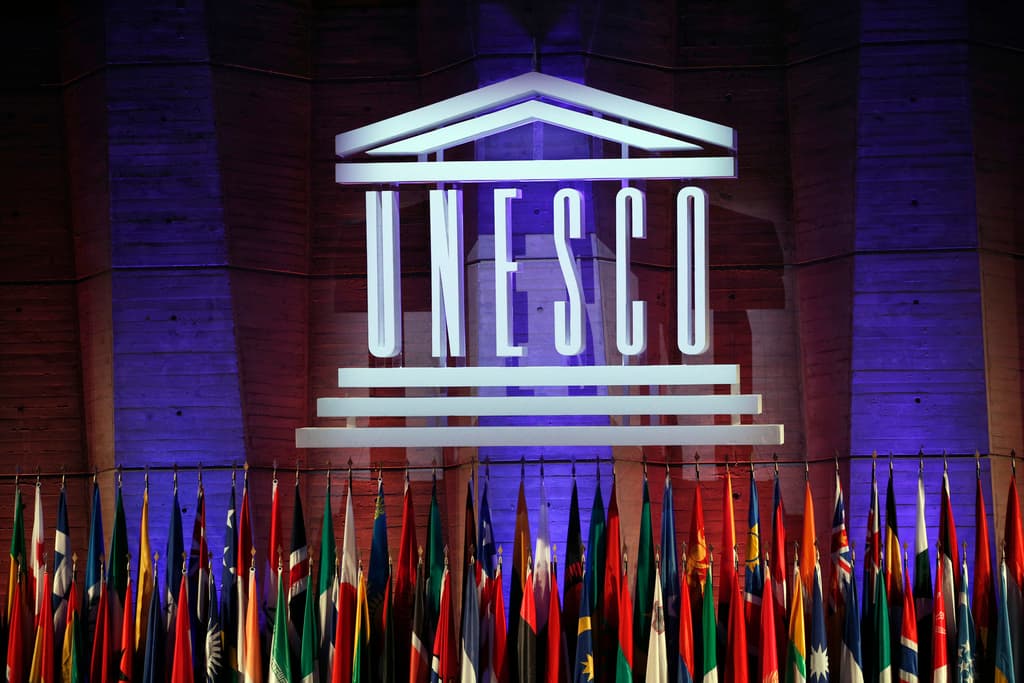Biden’s Decision To Rejoin UN Culture Agency Signals a Showdown in the Next Congress
The Biden administration prepares to reverse American policy and pay half a billion dollars in arrears to the educational agency riddled with anti-Israel bias.

President Biden’s rejoining of the United Nations Educational, Scientific, and Cultural Organization — a move that becomes official today — is consistent with his dubious position that it’s better for America to be a part of a club, despite its deficiencies, than outside it. This, however, comes at a price — half a billion dollars.
That’s what America would have to send to the United Nations to rejoin Unesco, reversing our long-standing bipartisan policy and undermining our credibility in combating anti-Israel bias at the world body.
Since ascending to office, Mr. Biden has reversed many foreign policy decisions made by his predecessor. This includes rejoining international organizations that the Trump administration believed contributed to anti-Israeli bias, if not outright antisemitism, and were incapable of being reformed. This included the UN Human Rights Council and Unesco.
In October 2021, America ran for election to the Human Rights Council, rejoining in January 2022 with the promise of reforming it. None of the promised reforms have taken place. Now, after lobbying Congress, the Biden administration is rejoining Unesco, arguing that America needs to be a member to compete with Communist China for standards of international education.
While the Unhrc and Unesco demonstrate anti-Israel bias through one-sided resolutions condemning the Jewish state and attempting to rewrite history, rejoining of Unesco is different than the Unhrc. The details are governed by how the bodies are managed and funded.
The Unhrc is a subsidiary organ of the General Assembly. Its members are elected, and it is funded through the UN’s regular budget, meaning a portion of the dues America pays to the United Nations goes towards the Office of the UN High Commissioner for Human Rights and the Council’s mandates.
Unesco, in contrast, is a specialized agency, an autonomous body that coordinates its work through the United Nations Economic and Social Council. Member states of the world body choose whether they want to be members, although most are, and pay additional dues to Unesco.
For about eight years, funding Unesco was against American law. To support the Israeli-Palestinian peace process, Congress passed in the 1990s two laws prohibiting any administration from funding UN bodies that admit the Palestinians as a member or that grant full membership as a state to any organization or group that does not have internationally recognized attributes of statehood.
To grant the Palestinians membership without first being recognized as a member in the General Assembly was considered a back door to recognition of statehood. This would undercut a formal peace process and likely result in conflict.
When Unesco granted the Palestinians membership in 2011, the Obama administration grudgingly cut funding but retained our membership and tried unsuccessfully to change our law. By the time President Trump withdrew from Unesco in 2019, America had amassed approximately $550 million in arrears.
Now, Mr. Biden is gaining entry by paying these arrears. Last year, the State Department convinced a Democratic-led Congress to create a loophole, providing a waiver to the aforementioned laws, thereby creating a pathway for paying Unesco arrears and enabling American membership.
While the provision includes a snapback clause requiring America to cut funding from an organ if the Palestinians gain membership in another UN agency, this provision carries little deterrent given the underlying policy reversal.
Capitulating and rejoining Unesco — and paying back more than half a billion dollars — gives the green light to the Palestinians to join other UN organizations and inch closer towards statehood without making peace with Israel. If Congress has already made one exception, who’s to say it wouldn’t make another?
Fortunately, Congress has an opportunity to course correct by closing this loophole. Given Mr. Biden’s eagerness to appease the United Nations, additional measures should also be included to prevent further membership and funding of international organizations that America has left unless clear conditions are met.
This could include blocking funding to bodies that espouse antisemitism or don’t meet minimum requirements for management best practices. Mr. Biden’s rejoining of Unesco would encourage Palestinians to pursue membership in other UN bodies and, in doing so, undermine American credibility. The 119th Congress could right the wrongs of the 118th and recommit to a process that does not encourage backdoor diplomacy.
